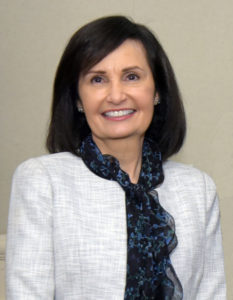Over the next decade, approximately half a million young people on the autism spectrum will transition to adulthood (Demer, 2018). When they turn 21, they must leave behind the programming and funding that has supported them throughout their lives, with many families not knowing what to do next. For some it could mean day habilitation programs or volunteering, but for others it could mean employment in the community.

Employment is a socially normative activity that often occupies the majority of adult lives and is a key component of passage into adulthood (Fussell, 2005). Unfortunately, the majority of people with developmental disabilities remain either unemployed or underemployed despite their ability, desire, and willingness to work; according to Autism Speaks, nearly half of 25-year-olds with autism have never held a paying job.
People with developmental disabilities such as autism should have access to the supports necessary from individuals and systems to assist them with finding and keeping community jobs based on their preferences, interests and strengths. They have the right to receive comparable wages and be free from workplace discrimination. With the right transition services and supports, individuals with autism can be set up for success in a job that they are qualified for and enjoy doing.
The goals of transition planning and services—that is, preparing for the transition from adolescence to adulthood—include promoting career exploration and development, extending education or training opportunities, supporting independent life skills, and enhancing health and well-being (U.S. Department of Health and Human Services, 2017). At The Arc Westchester, transition services are provided in a myriad of ways: through volunteer programs and groups, our supported employment program and through our Project SEARCH Autism Enhancement* (PSAE) internship program.

Tibi Guzmán
Executive Director and CEO
Since boys are four times more likely to be diagnosed with autism than girls (Baio J, Wiggins L, Christensen DL, et al, 2014), it’s important not to lose sight of meeting the latter’s needs. While all our programs and services are person-centered and tailored to each individual, we have picked up on the unique needs of the young women in our programs and try to meet those needs where we can. Over the years, the Project SEARCH staff has noticed that young women in the program are craving appropriate social interactions with their peers. Sometimes they can feel isolated and our staff has helped them create social circles within themselves. We present opportunities for them to interact with each other outside of the classroom, inviting them to an event on the weekends or helping schedule a meal for all of them together, in the hopes that when they graduate these connections and relationships can hopefully continue.
Here are just a few stories of young women with autism supported by The Arc Westchester and how they have successfully transitioned into contributing members of their community through employment and volunteering.
Carlie – Project SEARCH
Finding and keeping a job is hard for many people with ASD; navigating the social dynamics of the workplace, coping with sensory overload, organizing and completing tasks and communicating with coworkers may be challenging (Roux, Rast, Anderson and Shattuck, 2017). Our PSAE is a one-year internship program targeted for young adults ages 18 to 25 with ASD whose goal is competitive employment. PSAE uses the proven curriculum from the original Project SEARCH program at Cincinnati Children’s Hospital Medical Center and was enhanced by NEXT for AUTISM in partnership with The Arc Westchester, New York-Presbyterian Hospital, and New York-Presbyterian’s Center for Autism and the Developing Brain.
Carlie was a member of the 2018-2019 Project SEARCH class, and went through the intense, pre-vocational training using UNC TEACCH® Autism Program strategies. After graduation, we knew very well what a good job for her would be: Carlie needed a job with limited distractions. Mary, a member of our job development staff, went to the popular restaurant Texas Roadhouse in New Rochelle, NY, a business where we did not have an existing relationship. Mary brainstormed with the manager for an opportunity for Carlie to roll silverware before the restaurant opened.
In the beginning, Mary was onsite with Carlie often, helping her put together a structure, schedule reminders and implement all that she learned during her time with Project SEARCH. After seeing how well Carlie was doing at her job and how she was positively impacting the work environment, Texas Roadhouse contacted Mary about giving Carlie additional tasks. Carlie now is also responsible for filling salt and pepper shakers, cleaning windows, ledges and menus, prepping butter and brown sugar containers and preparing coloring books and crayons for kids. She is truly flourishing.
Alex – Employment Program
Through ACCES-VR and our supported employment program, Alexandra began working with M Group Consulting, LLC, one of the largest independent financial services firm in the tri-state area, in October 2018. It’s a very clerical, serious office environment, and Alex was hired for data entry and scanning documents. Her employers entrust her with their data and important documents, so it is imperative that she was taught the skills and given the supports to be successful in this, her first job.
In addition to job skills, our employment program helps Alex and all of those we support with adjusting to how to be an employee. From learning to become more independent, how to talk to co-workers and supervisors, how to respond to feedback from your bosses and general office protocol, we are dedicated to giving those we support strategies on how to be successful in every area of the workplace. After more than a year at M Group Consulting, Alex is doing wonderfully at her job and her employers truly value her.
The Choices Volunteer Group
For almost two years, four young women from our Choices Neighborhood program – including Haley, Jennifer and Samantha who have autism – have volunteered at The Manor Club in Pelham, NY, which was founded in 1913 when a group of women rescued the club after the previous organization began to struggle financially.
Every Tuesday, the Club hosts a luncheon for its members, and our volunteers assist in various tasks including preparing the food and dining area, registration, service and clean up. This has given them an opportunity to learn employment skills and to socialize with fellow Choices group members, as well as female members of the club.
One of the most important skills the girls have learned from this work is the structure of a workday, from arriving at work at 9:30 a.m., having lunch at 11:15 a.m. and leaving at 2 p.m. They also learn important communication skills that have a positive impact on every aspect of their lives.
In Conclusion
It is abundantly clear that with the right education, training and support, young women with autism can become highly regarded and respected employees and contributors to their community. It is through our experience and observation that there are certain social engagement skills that young women need in and out of the workplace, such as meaningful social interactions with their peers. It is abundantly clear, however, that more research is needed to better assess and improve ways we can best prepare women with autism to succeed in the workplace.
Recognizing and nurturing the potential of young women with autism is key to successful program outcomes. It is our expectation that organizations across the country continue to dedicate more resources and research to transition services to help the next generation of women with autism join and flourish in the workplace.
Tibi Guzmán is the Executive Director and CEO of The Arc Westchester, the largest agency in Westchester County, NY, supporting individuals with developmental disabilities, including those on the autism spectrum, and their families. She has been a part of The Arc’s leadership team for more than 14 years, overseeing different aspects of the organization. Ms. Guzmán has two sons and a B.S. from Fordham University, an M.P.S. from The New School for Health Service Administration and an M.A. in Economics from Fordham University. She was named one of Westchester’s Top Woman in Business by 914INC. Magazine in 2018.
For more information, please visit ArcWestchester.org.
References
Baio J, Wiggins L, Christensen DL, et al. Prevalence of Autism Spectrum Disorder Among Children Aged 8 Years — Autism and Developmental Disabilities Monitoring Network, 11 Sites, United States, 2014. MMWR Surveill Summ 2018;67(No. SS-6):1–23.
Demer, Linda L. The Autism Spectrum: Human Rights Perspectives. Pediatrics: Official Journal of the American Academy of Pediatrics. 2018
Fussell E, Furstenberg FJ. The Transition to Adulthood during the Twentieth Century: Race, nativity, and gender. In: Setterson RA Jr., Furstenberg FF Jr., Rumbaut RG, editors. On the Frontier to Adulthood: theory, research, and public policy. University of Chicago Press; Chicago: 2005.
Roux, Anne M., Rast, Jessica E., Anderson, Kristy A., and Shattuck, Paul T. National Autism Indicators Report: Developmental Disability Services and Outcomes in Adulthood. Philadelphia, PA: Life Course Outcomes Program, A.J. Drexel Autism Institute, Drexel University, 2017.
U.S. Department of Health and Human Services. Report to Congress: Young Adults and Transitioning Youth with Autism Spectrum Disorder. October 2017.



